Organizers Of Shiraz Marathon Summoned After Women Run Without Hijab
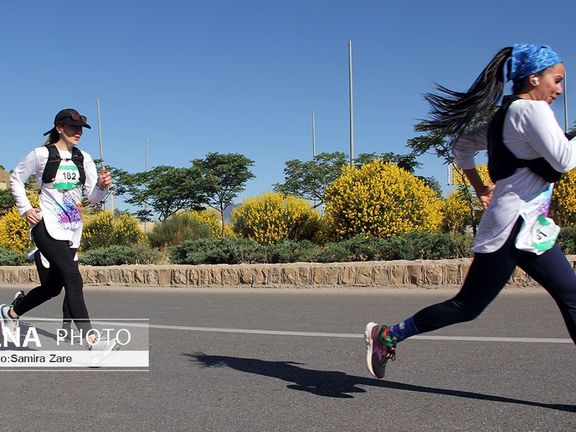
Iranian authorities have summoned the organisers of a marathon race in Shiraz after a number of women ran without hijab.

Iranian authorities have summoned the organisers of a marathon race in Shiraz after a number of women ran without hijab.
The Judiciary of Iran’s Fars Province has filed a case after the marathon race was held on Friday in the central streets of the city of Shiraz.
Mustafa Bahraini, Prosecutor General of the southern province said on Saturday that after this "deconstructive" action, the director and organizers have been summoned to provide an explanation.
Some women spectators in the street also defied the edit to wear hijab.
Since the death last September of 22-year-old Mahsa Amini in the custody of morality police and the protests that engulfed the country for months, many women have discarded their headscarves altogether and vowed never to wear it again.
The Islamic Republic is now facing the phenomenon of "hijablessness" as a form of civil disobedience.
Only five months after the Islamic Revolution of 1979, then leader of Iran Ayatollah Ruhollah Khomeini banned women from appearing without a veil in government offices. The ban gradually spread to the entire society within the next two years.
Iran's women eventually gave into covering their hair, even if partially, with headscarves and shawls and wearing tunics and trousers that could be tight-fitting and/or colorful. The hardline religious and political establishment considered this level of compliance faulty and called these women "bad-hijab".
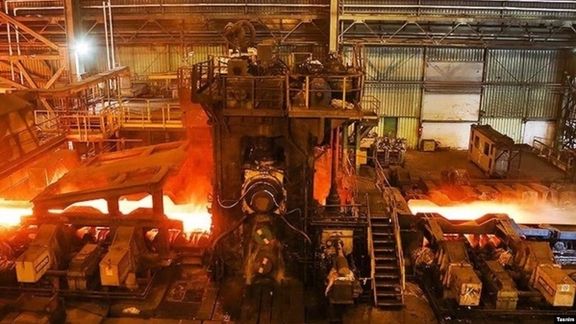
While the Islamic Republic has sought to become the seventh steel producer in the world, data shows that it is struggling to keep its spot among the top ten.
According to reports by industry sources, the steel production in Iran plummeted because the regime faces a severe shortage of electricity and gas, both vital for running the plants.
Iran Chamber of Commerce, Industries, Mines and Agriculture says the power outage in the Iranian year 1400 – ending March 2022 – led to a loss of seven to eight billion dollars in non-oil exports.
Some among industry experts say that loss of this magnitude, while oil exports have been reduced by US sanctions, led to shortage of foreign currencies in Iran, which contributed to its sharp decline since September.
Iran's rial has fallen from 260,00 to the US dollar last August to 540,000 as of this week.
Ahmad Mahdavi Abhari says that 45% of Iran’s non-oil exports is related to petrochemicals, saying that "Urea and methanol exports decreased by 2.5 million tons due to the gas cuts, meaning that it cost$700 million in exports.”
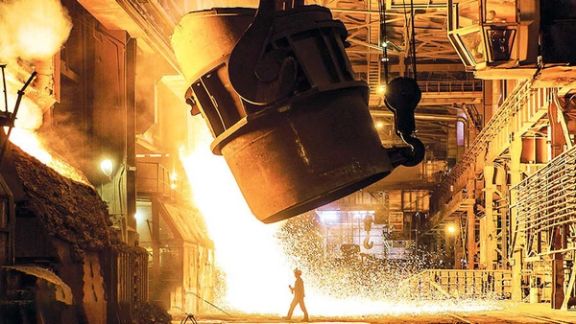
Zakaria Nayebi, a businessman active in the steel industry, says the production of steel ingot and direct reduced iron decreased for three months due to the shortages of electricity and gas.
While the Islamic Republic officials predicted a bad winter in Europe, offices and schools in Iran were closed for days in winter due to a serious natural gas shortage.
Iran has failed to invest in its gas production sector, although it has the world’s second largest reserves. The distribution network also needs upgrades as more than 25 percent of the gas is lost during transfer.
Earlier this year, an Iranian industrialist said the gas and electricity shortage would probably lead to a two-million-ton decrease in steel production. Reza Shahrestani said there is a severe gas shortage for industries, adding that the steel industry needs 40 million cubic meters of gas daily, but at present their consumption has reached 15 million cubic meters per day, adding that almost 50% of the electricity supply for industries has been cut off too.
“Gas shortage has also led to electricity shortage because the current amount of natural gas does not meet the needs of power plants to produce electricity,” he underlined. “It seems that the gas and electricity shortage will be more severe next year and if it continues like this. It will have a tangible impact on the production rate of all industries,” he added.
The World Steel Association, in its march report, removed Iran from the list of the 10 largest steel producers in the world, and Italy was replaced by Iran. Iran has always been among the top 10 largest steel producer in the world, and in the first two months of 2023, Iran was the ninth largest steel producer above Turkey.
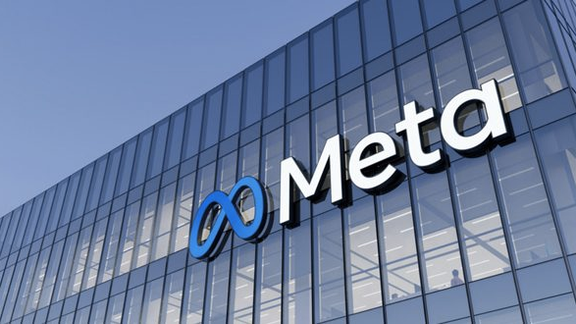
Meta says it has removed 40 Facebook accounts, eight pages and one group affiliated with Iran for violating its policy against coordinated inauthentic behavior.
The tech giant said these accounts and pages were mainly aimed at Israel, France, and Bahrain.
In its first quarterly adversarial threat report in 2023, Meta said this operation ran across multiple internet services—including Facebook, Twitter, Telegram, YouTube, and hacking forums—where it claimed to have hacked entities in the countries they targeted, including news media, logistics and transport companies, educational institutions, an airport, a dating service, and a government institution.
“The individuals behind this network alleged to have stolen these organizations’ data or defaced their websites. We cannot confirm if any of the claimed attacks against these entities have, in fact, occurred. We removed this network before it was able to gain a following among authentic communities on our platforms.”
It further added that multiple distinct clusters posed as separate hacktivist teams, with each only active for a few days to a few weeks.
Accordingly, three separate clusters focused on Israel, where they offered to sell hacked data that allegedly belonged to commercial companies, educational institutions, and a dating app. Another cluster that targeted Bahrain claimed to have hacked government websites before the country's elections.
“It was removed last year by both automation and our investigative team. The final cluster focused on France and claimed to have hacked the Charlie Hebdo newspaper. The news media reported some of these individual claims in Israel, Bahrain, and France,” underlined Meta.
The people behind this network used fake accounts to post, like and share their own content to make it appear more popular than it was, as well as to manage pages and groups posing as hacktivist teams.
They also liked and shared other people’s posts about cybersecurity topics, likely to make fake accounts look more credible.
Some of these accounts used profile photos likely generated using machine learning techniques like generative adversarial networks. Meta says it found the full scope of this activity after reviewing information shared with the company by its peers at Microsoft.
Based on the report, around 750 accounts followed one or more of these pages; around 80 accounts joined one or more of these groups.
Last year, the US Congress said it was investigating the Meta social media network to find out why the platform is censoring content by Iranian dissidents and pro-democracy advocates.
Following reports that the social media giant might be aiding the Iranian government amid a wave of protests, three Republican lawmakers on the House Foreign Affairs and Armed Services Committees have launched a probe into the matter, a copy of which was published by the Washington Free Beacon on Tuesday.
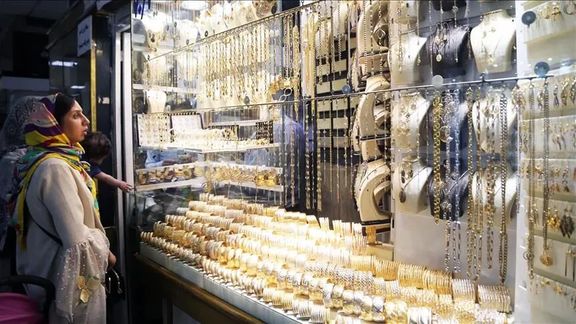
The World Gold Council announced a major jump in the purchase of gold coins and bars by Iranian citizens in the first quarter of 2023.
According to the council, Iran saw bar and coin investment of 13 tons in the first three months of 2023 – which means a 26% increase compared to the 10 tons five-year quarterly average.
“Investment was spurred by a weak domestic currency, which fed through to soaring local gold prices, and extreme inflation,” added the World Gold Council in its report on Friday.
Disruption to the supply of gold coins has also pushed premiums up.
However, higher prices dampened demand for jewelry in the country. The council says Iran saw 15% less demand for jewelry than last year, with gold price rises magnified by local currency depreciation against the dollar.
Iran's rial has halved in value since August 2022, fueling inflation, which has surpassed a 50-percent annual rate. Experts say the country will go into hyperinflation in the coming months as the weak currency pushed prices higher.
Hyperinflation is a very high and typically accelerating inflation, which quickly erodes the value of the local currency -- rial in this case -- while the prices of all goods increase exponentially. In such a situation, people move to minimize their holdings in the national currency and switch to more stable assets like gold coins and bars.
The Central Bank of Iran announced late in March that the annual inflation rate stands at 46.5 percent. Although the official inflation rate is usually less than what actual prices reflect, even a 46.5-percent inflation is among the highest in Iran in more than 30 years.
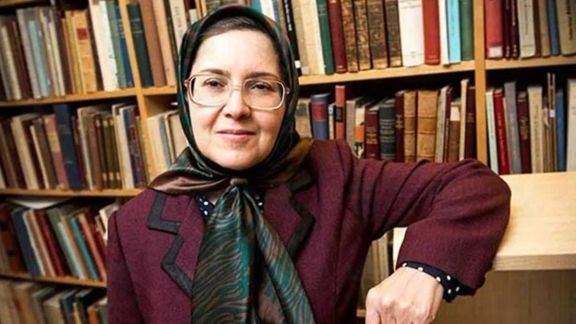
Alireza Arafi, the dean of the Qom Seminary says Iranian clerics will stand firm on their position regardless of recent attacks on by ordinary people on clergymen.
Speaking before the Friday prayers in Qomm on May 5, Arafi was referring to at least four clerics who have been killed in recent months and a few others who suffered serious injuries by incidents of car ramming. He said, "The clerics' martyrdom was both painful and a source for pride."
Arafi, however, attributed the attacks to "conspiracies hatched and engineered by the enemies in the form of a hybrid war." This comes while some media outlets and sociologists in Iran say the attacks show young Iranians' anger and frustration as their demands have been ignored for several years.
Meanwhile, prominent female jurisconsult Sedigheh Vasmaghi has welcomed a statement by Qom cleric Ayatollah Mohammad Javad Alavi Boroujerdi. The cleric had recently said about the attacks that "The clerics' words and approach has led to insecurity and created grudge and hatred in the society."
Borujerdi had further called on the clerics who are part of the Islamic government in Iran to apologize to women and the rest of the nation for their words and approaches toward women and the issue of hijab.
Vasmaghi agreed with him that clerics' school of thought has made the Iranian society insecure. She also said that the clergy owe much to Iranian women for what they have said during the past four decades.
She also said that they should have paid attention to warnings about public anger and the widening gap between themselves and the people. Vasmaghi reiterated: "There should be security in the society for all citizens. It is not possible to keep one part of the society safe at the price of others' insecurity."
Meanwhile, the firebrand Friday Imam of Tehran, Ahmad Khatami claimed that clerics are still popular in Iran although their image is being tarnished on social media. Although he tried to pretend that he was unshaken as a result of the attacks, yet he made a few fatalistic remarks such as "We all have to leave this world one day anyway," and "We will have to go no matter if we like it or not. We are all bound for eternity."
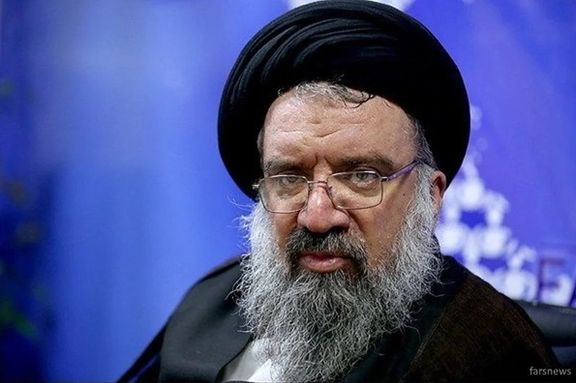
Khatami also dedicated a large part of his sermon to the attacks on clerics and praised them for facing death in cold blood. He said, "The reason for these attacks is that the clerics' presence annoys arrogant powers [the United States]." However, he did not explain why major politicians like himself are safe while the attacks often target low-key clerical figures.
Some unconfirmed social media reports said the Ministry of Interior has warned clerics at seminaries to leave their robes and put on ordinary outfit when they have to go into the public.
Khatami then called on the Judiciary to take swift measures to punish those who have attacked the clerics. The latest attack still remains a mystery in Bobol in the Caspian region where a cleric, Ebrahim Fazel, who is the son of the dean of the city's seminary was found dead in the sea and his death remains unresolved. He asked the Judiciary to make Iran insecure for those who attack the clerics.
In another development, Hossein Ansarian, a prominent cleric who has recently criticized the government for its heavy-handed and outdated approach to compulsory hijab, said: "Some of us clerics belong to 100 years ago, some others to even 200 years ago and are not fit for today. What we say from the pulpits are no good for the modern society." He added that some clerics who lived in the 20th century preached in a way that served modern men and women.
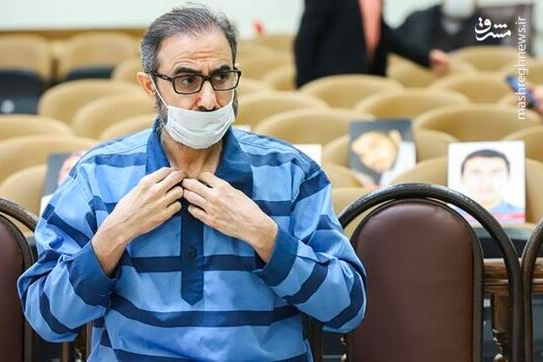
The execution of Iranian-Swedish political activist Habib Asyud has been condemned by the government in Sweden.
The Swedish Foreign Ministry summoned Iran’s deputy ambassador to Stockholm over the hanging on Saturday morning of the dual-nationality opposition figure.
Asyud, former leader of the Arab Struggle Movement for the Liberation of Ahwaz (ASMLA), had been convicted of leading an Arab separatist group accused of attacks including one on a military parade in 2018 that killed 25 people.
He was sentenced to death for being "corrupt on earth", a capital offence under Iran's strict Islamic laws.
The Swedish foreign ministry said in a statement that the death penalty is an inhumane punishment, and Stockholm condemns it along with other European Union countries.
Asyud, 49, was put on trial by a revolutionary court in Tehran in December. He was not allowed to choose his own defense attorney and was represented in his trial by a court-appointed lawyer. He was also forced under duress to make self-incriminating confessions.
Iranian authorities say he was found guilty for leading ASMLA (Harakat al-Nidal in Arabic), a movement which advocates the separation of southwestern Khuzestan Province and for plotting "numerous bombings and terrorist operations" in the oil-rich province with a large Arabic speaking population.
Iran's relations with Sweden have been strained since July 2022 when a Swedish court sentenced a former Iranian jailor, Hamid Nouri, to life imprisonment over executions of political prisoners in 1988.
Iran's foreign ministry spokesman Nasser Kanani in a statement “strongly condemned” the Swedish court’s “politically-motivated and unacceptable” verdict against Nouri, saying the Stockholm government would be responsible for the damage the verdict would cause in bilateral relations.